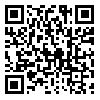BibTeX | RIS | EndNote | Medlars | ProCite | Reference Manager | RefWorks
Send citation to:
URL: http://journal.muq.ac.ir/article-1-622-en.html
2- Tehran University of Medical Sciences ,
3- Tehran University of Medical Sciences
Background and Objectives: With regard to the importance of complementary therapy in premature infants and also the insufficient studies in this regard, this study was conducted in order to examine the effect of holly Quran recitation and effective factors on physiological responses of premature infants.
Methods: This study is a randomized controlled trial with 60 premature infants admitted to the NICU. Holly Quran recitation including 20 minutes recitation of Yusuf Quran chapters, recited by Shahhat Mohammad Anvar which was played via headphone with a volume range of 50-60 db. Three dependent variables including oxygen saturation levels, heart rate and respiratory rate were observed. Data were analyzed by SPSS-PC software and repeated measures, Independent-samples t test and linear regression.
Results: Repeated measures showed significant differences in the mean of oxygen saturation, respiratory and heart rate at the 10th, 20th and 30th minutes of study (p<0.0001) in comparison to the basic measurements. The means of respiratory and heart rate significantly decreased and oxygen saturation increased and these changes continued till 10 minutes after the end of intervention. In the linear regression, oxygen saturation was not affected by background factors, but respiratory rate 10 minutes after intervention was significantly affected by gestational age (p=0.015,β=-0.31), birth weight (p=0.025, β=-0.28) and weight at the time of intervention(p=0.018, β=-0.30). The results of t-test showed that in the boys, the mean of respiratory rate and heart rate at the end of intervention, and respiratory rate 10 minute after intervention, were significantly lower than those in the girls (p=0.01, p=0.04, p=0.01). Responses to holly Quran recitation in preterm infants were not affected by factors such chronological age, delivery method and apgar score.
Conclusion: Based on the results, Quran recitation has constant effects on preterm infant’s responses including oxygen saturation level, heart rate and respiratory rate, Therefore, bringing about high level of intervention effect is possible with regard to factors such as gestational age and birth weight.
Received: 2016/04/8 | Accepted: 2016/04/8 | Published: 2016/04/8
| Rights and permissions | |
 |
This work is licensed under a Creative Commons Attribution-NonCommercial 4.0 International License. |






